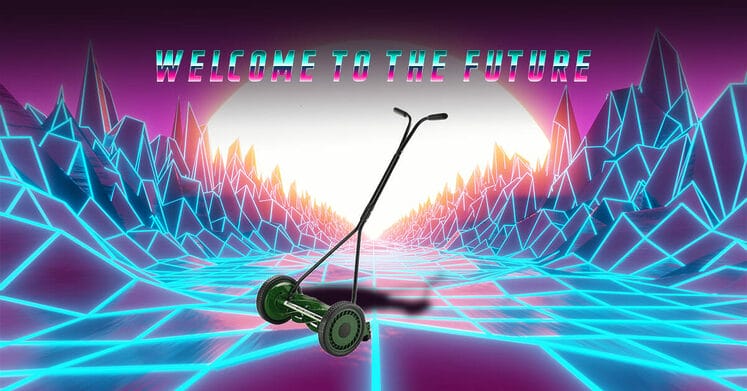
Bill of the Day SB22-138, Reduce Greenhouse Gas Emissions In Colorado
If you are old enough to remember when JFK took office and you grew up in a farm family, you might recall a term called “stoop labor.” Stoop labor is “the physical labor associated with the cultivation or picking of crops in farm fields, especially as performed by poorly paid, unskilled workers.” It’s the back-breaking work primarily supplanted by modern machinery and tools. If SB22-138, Reduce Greenhouse Gas Emissions In Colorado passes, some in Colorado, especially those in the landscaping industry, might see a return to stoop labor conditions in their industry.
If SB22-138 passes, small offroad engines, defined as “gasoline-powered engines with 50 horsepower or less,” will no longer be sold in Colorado after 2030. Small offroad engines include lawnmowers and leaf blowers, the core tools of the landscaping industry.
The dense language of the bill’s summary includes ten sections. The bill contains mandates for insurance industry reporting, numerous instances of government overreach, and the loss of individual freedoms, as can be seen with the proposed ban on small offroad engines.
Half of the bill’s ten sections concern funding schemes and statutory changes to accommodate “agrivoltaics.” Agrivoltaics is the simultaneous use of land to generate solar power and for agriculture.
The bill is sponsored by State Senator Chris Hansen and State Representative Alex Valdez. Hansen is the Co-Chair of the Colorado Energy Colation. Valdez is the founder of EcoMark Solar, a Colorado-based solar panel installation company.
Section 1 of the bill requires each insurance company issued a certificate of authority to transact insurance business to prepare and file an annual report with the insurance commissioner providing a climate-risk assessment for the insurance company’s investment portfolio from the previous 12 months. The commissioner of insurance is required to post the reports on the division of insurance’s website. Section 1 defines “climate-risk assessment” as a determination of the economic and business risks that climate change poses to an investment.Section 2 requires the board of trustees of the public employees’ retirement association (PERA board) to prepare a similar annual report and post it on the PERA board’s website.Section 3 updates the statewide greenhouse gas (GHG) emission reduction goals to add a 40% reduction goal for 2028 compared to 2005 GHG pollution levels and a 75% reduction goal for 2040 compared to 2005 GHG pollution levels.Section 4 defines a small off-road engine as a gasoline-powered engine of 50 horsepower or less used to fuel small off-road equipment like lawn mowers and leaf blowers. Section 4 phases out the use of small off-road engines by prohibiting their sale in nonattainment areas of the state on or after January 1, 2030, and by providing financial incentives to promote the replacement of small off-road engines with electric-powered, small off-road equipment before 2030.Section 11 establishes a state income tax credit in an amount equal to 30% of the purchase price for new, electric-powered, small off-road equipment for purchases made in income tax years 2023 through 2029.Section 6 gives the oil and gas conservation commission authority over class VI injection wells used for sequestration of GHG, including through the issuance and enforcement of permits.Section 7 requires the commissioner of agriculture or the commissioner’s designee, in consultation with the Colorado energy office and the air quality control commission, to conduct a study examining carbon reduction and sequestration opportunities in the agricultural sector in the state, including the potential development of certified carbon offset programs or credit instruments. On or before December 15, 2022, the commissioner of agriculture or the commissioner’s designee is required to submit a report summarizing the study, including any legislative recommendations, to the general assembly.
In support of the use of agrivoltaics, which is the colocation of solar energy generation facilities on a parcel of land with agricultural activities, section 8 authorizes the Colorado agriculture value-added development board (board) to provide financing, including grants or loans, for agricultural research on the use of agrivoltaics. For a research project for which the board awards money to study the use of agrivoltaics, sections 5 and 8 require the director of the division of parks and wildlife to consult on the research project regarding the wildlife impacts of agrivoltaic use.Section 9 authorizes the board to seek, accept, and expend gifts, grants, and donations, including donations of in-kind resources such as solar panels, for use in agricultural research projects. Section 9 also updates the statutory definition of “agrivoltaics” to list additional agricultural activities on the parcel of land on which solar panel generation facilities may be colocated, including animal husbandry, cover cropping for soil health, and carbon sequestration.Section 10 amends the statutory definition of “solar energy facility” used in determining the valuation of public utilities for property tax purposes to include agrivoltaics.
(Note: This summary applies to this bill as introduced.)


Responses